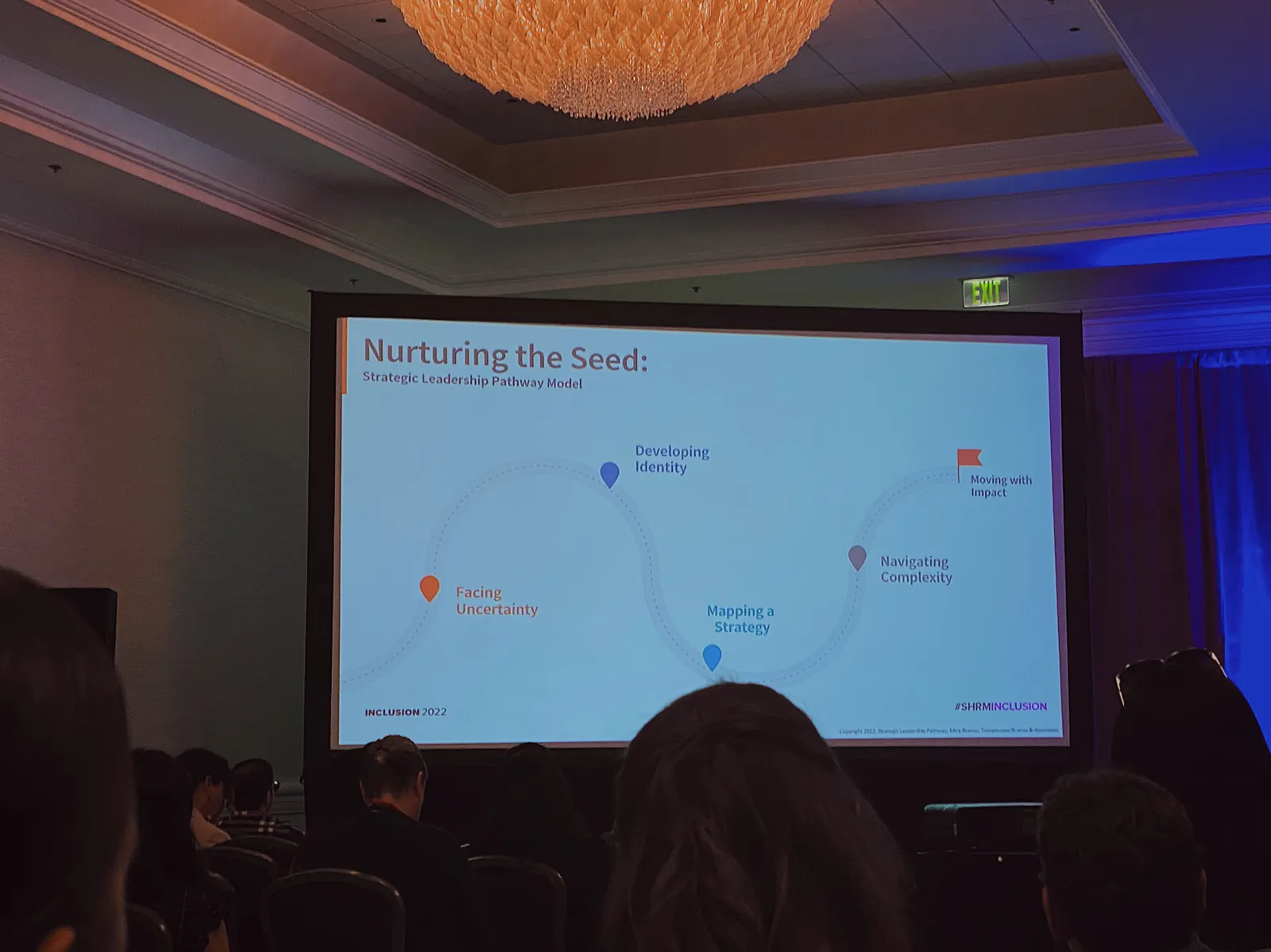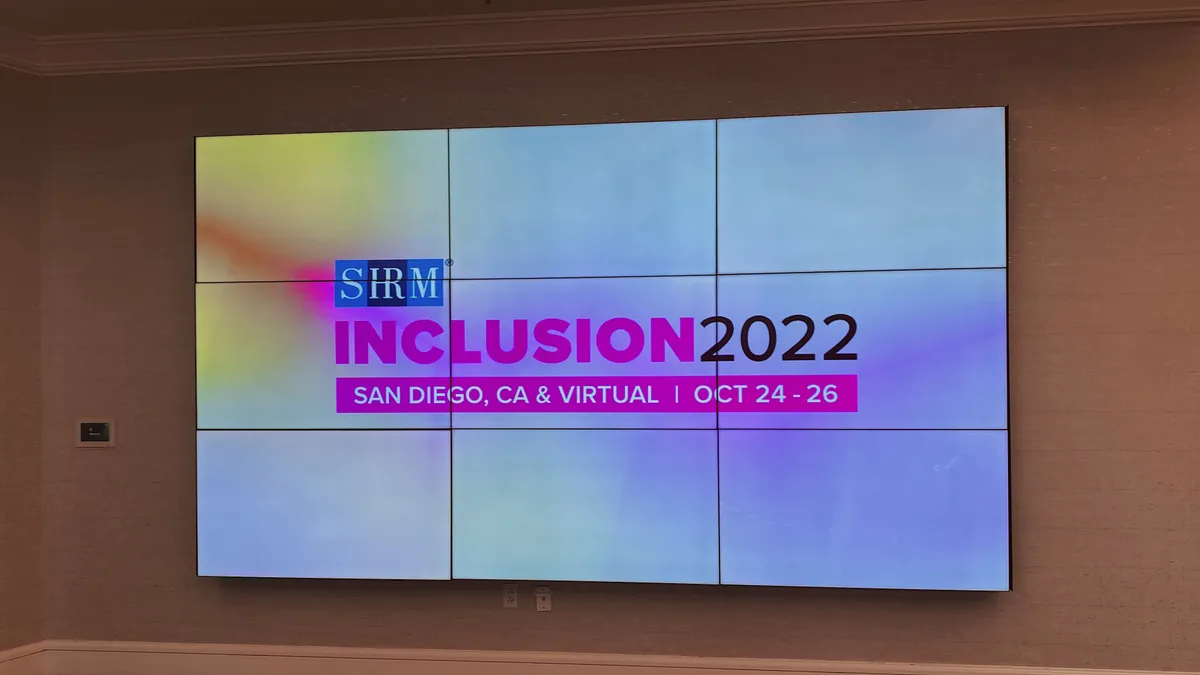SAN DIEGO — In a room of tinkling crystal leaves, Mira Brancu gave a sermon on gardening.
It’s mid-morning on the first day of the Society for Human Resource Management’s second annual inclusion conference. In conference room Pearl 3, Brancu, an author, consultant and associate professor at Duke University’s School of Medicine, broke down her strategic leadership framework and likened it to the horticultural process. From her perspective, women with career aspirations are seeds; whether they bloom depends on how they are nurtured.
The main takeaway? Toxic workplaces, combined with gender discrimination, make for poor soil.
From Brancu’s perspective, five layers of treacherous soil exist: uncertainty, identity challenges, the imperative of mapping out a game plan, life’s complexities and the desire to lead with impact.

Brancu spoke at length about how many women feel compelled to erase their identity in order to be fit for leadership. In practice, this often looks like downplaying gendered struggles or experiences, Brancu said. She also observed that even in spaces meant to develop professional women, the focus is on molding talent into ideal leaders — as opposed to addressing the distinct hardships of working womanhood.
An audience member later came to the mic to say she was now thinking of revamping her company’s ERG to focus more on holding space for women’s issues and emotions, along with leadership skills.
Brancu also noted the “broken rung issue,” wherein women fall through the cracks.
In its 2022 report, LeanIn.Org and McKinsey & Company confirmed that for the eighth year in a row, a “broken rung” is preventing women from taking that “first step up” to manager.
“For every 100 men who are promoted from entry level to manager, only 87 women are promoted, and only 82 women of color are promoted,” researchers explained. “As a result, men significantly outnumber women at the manager level, and women can never catch up. There are simply too few women to promote into senior leadership positions.”

Conversations about working womanhood often revolve around child care; particularly since the onset of the pandemic, subsequent child care shortages and attrition of women from the workplace due to gendered norms regarding caretaking are top of mind.
Brancu told HR Dive she is careful to not equate women with child care. “It’s a family affair,” she said.
Her take on the working parent issue: “Encourage managers to decide for themselves the level of autonomy and flexibility needed for their team, instead of a broad organizational mandate that does not make any sense,” she said.














